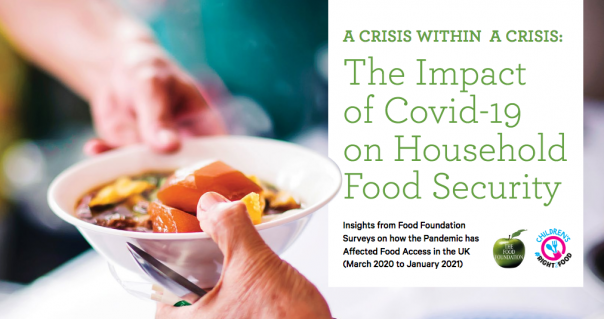Food Foundation report highlights impact of Covid-19 on food insecurity

The Food Foundation Report urges the Government to make food security a priority in the recovery planning. Food insecurity is currently affecting 4.7 million adults (9% of households) compared to 7.6% pre-Covid.
Over half (55%) of those experiencing food insecurity said it was because they did not have enough money for food. The Food Foundation estimated that 2.3 million children live in households that have experienced food insecurity within the past six months.
Emma Thompson, ambassador of the Children’s Right2Food Campaign, said: “In the sixth richest economy in the world these figures speak for themselves. There is absolutely no need for any child to go hungry in the UK.
“The fact that they are and in increasing numbers suggests cracks in a broken food system that can and must be repaired as a matter of the utmost urgency. Apart from the moral duty we owe to children, this is a severe public health problem.”
According to the new report nearly one million children aged 8-17-years-old reported they or their family had visited a food bank since early December 2020.
Compared to white ethnicities, BAME households have consistently been twice as likely to be food insecure. Data in January showed 20% of BAME households have experienced food insecurity in the last six months compared to 9% of white British households.
The 3 key recommendations in the report include:
- An urgent review of Free School Meals: prioritising ensuring the eligibility threshold does not exclude any disadvantaged children from accessing a healthy meal.
- Businesses should pay at least the Real Living Wage and the Government should make the £20 Universal credit uplift permanent.
- Designate authority in Government to be responsible for monitoring and tackling food insecurity.
Anna Taylor, executive director of Food Foundation, added: “We should now move to a longer-term package of support for food insecure households and away from emergency measures.
“Making the £20 uplift to Universal credit permanent is a vital part of this package, as is extending Free School Meals to all children in food insecure households. The long-term effects of food insecurity on mental and physical health mean that children can’t wait.”
The Food Foundation will be reporting its latest findings during a webinar on 9 March. If you are interested in the webinar, register here.
